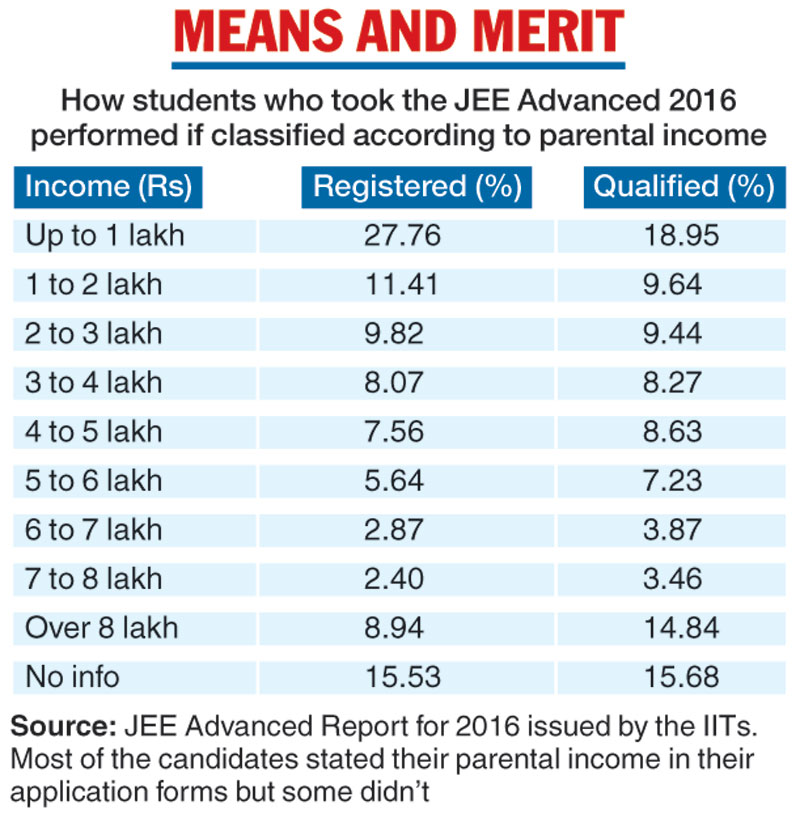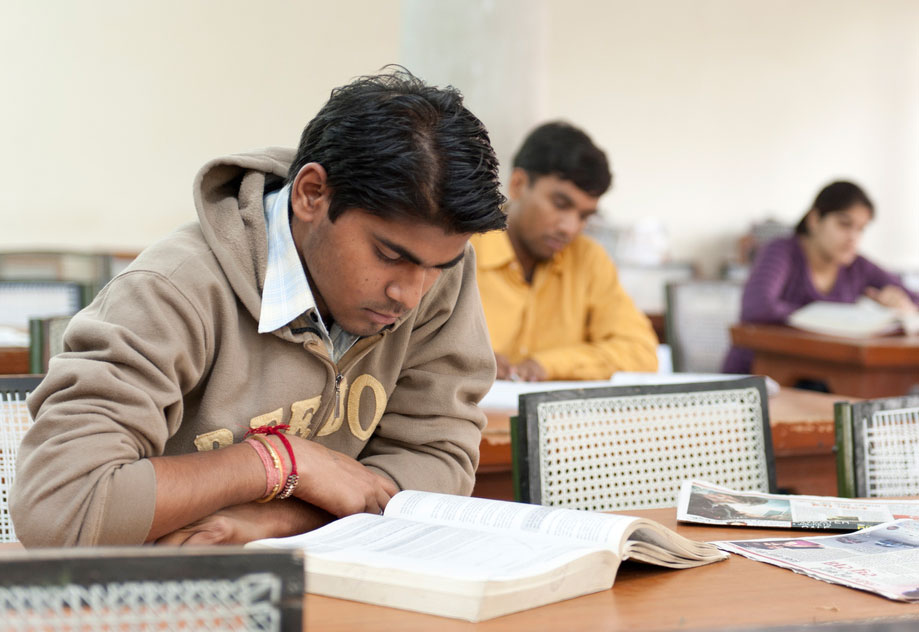A look at the break-up, by parental income, of the students who registered for the JEE Advanced in 2016 and those among them that qualified appears to counter the idea that economic backwardness may by itself translate into educational backwardness.
Among the students who declared their parental income and registered for the JEE Advanced — by clearing the tough JEE Main — nearly 90 per cent showed incomes below Rs 8 lakh a year.
Among the students who cleared the JEE Advanced —qualifying for admission to the IITs — over 82 per cent of those whose parental income is known came from below the Rs 8 lakh category.
If low-income candidates can crack the JEE Advanced — one of the toughest admission tests in the country — they are likely to ace entrance exams for other courses and institutions too.
The Centre plans to introduce a 10 per cent reservation in government jobs and education for the “economically weaker sections” among communities that so far did not enjoy the benefit of quotas. Officials have said an annual parental income of Rs 8 lakh is the likely cut-off to determine who is eligible for this slice of reservation.
But the JEE Advanced Report 2016 issued by the IITs suggests that the government’s proposed quota may have only a minimal impact on admissions, rendering it largely redundant, academics suggested. Some of the highlights of the report’s findings:
- At least 75.53 per cent of the 1.56 lakh students who registered for the JEE Advanced have parental incomes below Rs 8 lakh. This accounts for 89.4 per cent of the students whose parental incomes are known.
- Of those who qualified through the JEE Advanced, 69.48 per cent were from the below-8-lakh category, which comes to 82.4 per cent of those whose income category is known.
- Suppose one assumes that the entire chunk of 49.5 per cent quota (Dalit, tribal, OBC) students falls within the below-8-lakh bracket and leaves them out of the calculations. Even then, the below-8-lakh general category students account for 74.4 per cent and 57.4 per cent, respectively, of the general students who registered and qualified.
This implies that most of the students who might qualify under the economic quota would probably have qualified anyway on merit.
“I, therefore, don’t see much change in the profile of the students coming to the IITs (because of the proposed quota). The catchment for the 10 per cent quota remains virtually the same as that for the (current) 50.5 per cent unreserved seats,” said M.K. Panigrahi, an IIT Kharagpur professor and former JEE Advanced chairperson.
G.B. Reddy, an IIT Delhi professor and former JEE chairperson, echoed him, arguing the proposed quota would not help the targeted group much. He suggested the government might eventually feel compelled to create supernumerary seats for the economically weaker students from the upper castes --- or perhaps create extra seats for everyone.
“My gut feeling is that the government may create additional seats,” he said.
One possible implication of the JEE Advanced 2016 Report is that a lower income cut-off may have a greater impact.
The chart shows that up to the Rs 3 lakh bracket, each category’s share in the “qualified” column is less than its share in the “registered” column. The higher up the income scale one goes, the better the performance.
A human resource development ministry official underlined one facet of the economic quota: the space available for Dalit, tribal or OBC students to make the general merit list will shrink by 10 per cent.

The Telegraph











